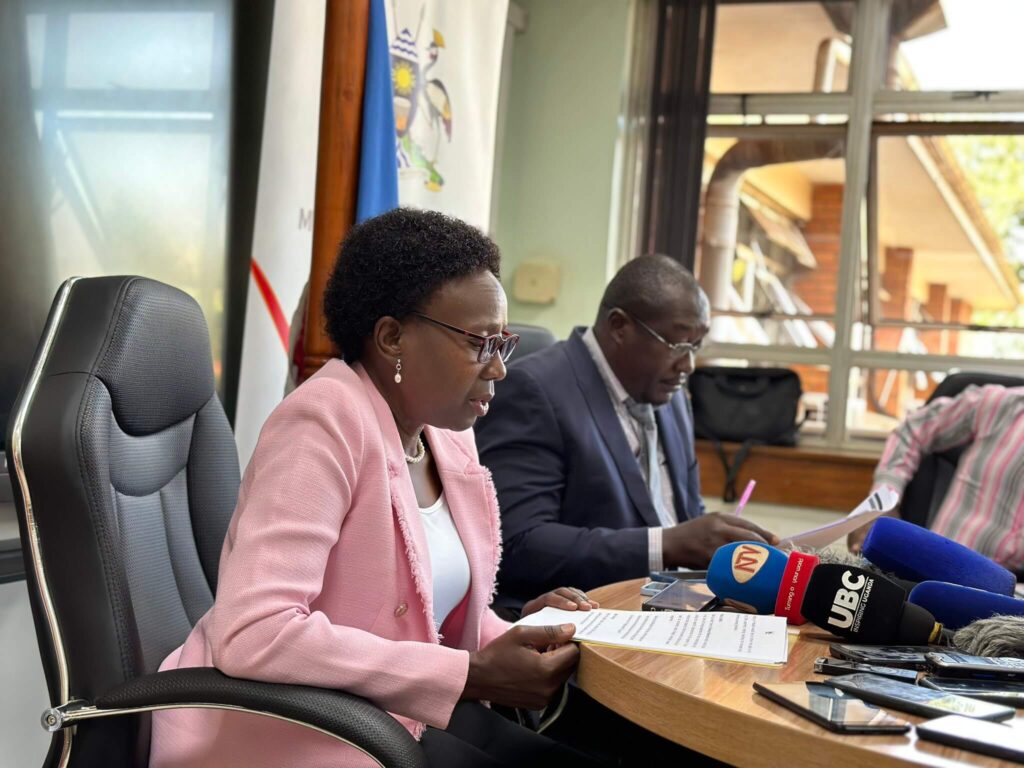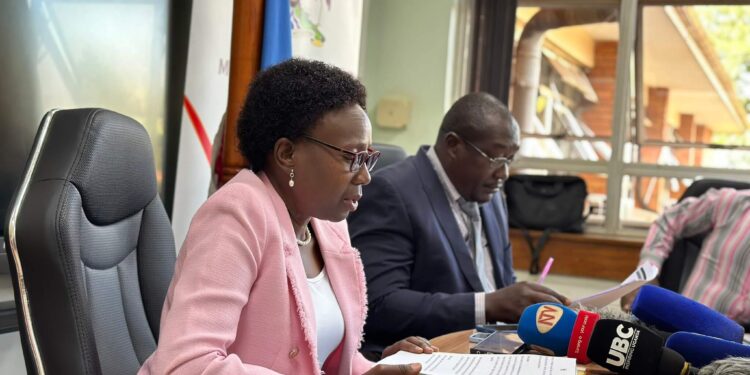In an effort to address the rising demand for deoxyribonucleic acid (DNA) paternity tests in Uganda, the Health Ministry has designated two laboratories as the only authorized facilities to conduct such tests in the country.
KAMPALA, UGANDA | NOW THEN DIGITAL — In a recent announcement, the Health Ministry of Uganda has designated private laboratory MBN and Government Analytical Laboratory as the sole accredited facilities authorized to conduct deoxyribonucleic acid (DNA) paternity tests in the country.
The decision comes as the demand for such tests has significantly increased over the past month, partly due to a lack of trust.
Dr. Jane Ruth Aceng, the Health Minister, highlighted the rigorous accreditation requirements that these laboratories have met, including the presence of highly skilled personnel, appropriate infrastructure, and robust quality control and quality assurance protocols, coupled with international accreditation.

Two Laboratories Granted Accreditation
Dr. Aceng explained that, at present, only the Government Analytical Laboratory and MBN clinical laboratory have fulfilled the strict criteria for accreditation, which is why they are currently responsible for conducting DNA paternity tests.
She emphasized that any other laboratory wishing to perform such tests would need to meet the same stringent accreditation criteria.
Notably, Government Analytical Laboratory and MBN clinical laboratory reported that out of the ten paternity disputes that underwent testing, seven confirmed positive biological relationships, while three proved to be negated biological relationships, thereby resolving the disputes in question.
.@JaneRuth_Aceng: I would like to guide as follows:
1. Only the two certified/accredited Laboratories, GAL in Wndegeya and MBN Clinical Laboratory on Nakasero Road, both in Kampala, shall be allowed to do DNA paternity testing in Uganda for now. pic.twitter.com/xh1wC1w8fx— Ministry of Health- Uganda (@MinofHealthUG) July 10, 2023
Accredited Laboratories and Their Locations
The Government Analytical Laboratory, situated in Wandegeya, Kampala, and MBN, with its headquarters in Kampala and branches across the country, have been identified as the two laboratories authorized to carry out DNA paternity testing in Uganda.
The ownership of the MBN laboratory could not be determined at the time of this report. During a recent media engagement, Dr. Aceng refuted claims suggesting a DNA paternity testing crisis in the country.
She clarified that DNA paternity testing has been an established practice in Uganda for nearly two decades, regularly employed to settle paternity and kinship disputes.
Addressing Public Concerns
Dr. Aceng acknowledged that reports circulating on social media about child neglect, homicides, and even suicides following negative paternity test results have contributed to the perception of a DNA paternity testing crisis.
Consequently, public confidence has been eroded, leading to doubts about the validity and integrity of the test results, as well as the credibility of the individuals and laboratories involved. Concerns have also arisen regarding the potential for incorrect DNA results due to faulty machines, specialist incompetence or errors, or inadvertent sample or result mix-ups.
The Process and Machines Used
DNA tests rely on Polymerase Chain Reaction (PCR) machines, which are available in numerous health facilities and research centers. These machines are the same ones used for testing COVID-19 and other infectious agents.
While paternity test results are highly sensitive, some women leaders and religious figures opposing paternity testing argue that it poses risks to family unity and inflicts significant emotional distress upon the children involved.
Calls for Regulation
Gender Minister Betty Amongi recently stated that husbands are sometimes to blame when women have children with other men, as they may be unavailable or unfaithful. Additionally, she noted that women may face pressure from their husband’s families to produce male heirs, leading them to seek alternatives when their children with their husbands are all girls.
In light of these concerns, Deputy Speaker of Parliament Thomas Tayebwa called for stronger regulation and guidance on DNA tests. Prime Minister Robinah Nabbanja was urged to address the DNA testing situation in a statement to Parliament this week.
Strengthening Regulation and Addressing Misconduct
Minister Aceng expressed that the aforementioned concerns prompted discussions with laboratory owners, as well as various government ministries, departments, and agencies, to enhance the regulation of DNA paternity tests.
The Ministry of Health plans to develop and implement guidelines to ensure the adoption of quality, legal, ethical, and professional practices in DNA paternity testing. Furthermore, efforts are underway to expedite the enactment of the DNA evidence and database bill proposed by the Ministry of Internal Affairs.
Combatting Fraudulent Practices
Dr. Aceng disclosed that several laboratories have falsely claimed to offer DNA paternity testing, while merely collecting samples and sending them elsewhere for analysis, either within or outside the country. She also raised concerns about unscrupulous agents smuggling counterfeit equipment, reagents, or test kits into Uganda.
Notably, she cautioned against the use of unauthorized home-based DNA test kits available online, emphasizing that they have not been validated or approved for use in the country.
The Ministry of Health has instructed the department of national health laboratory and diagnostic services to collaborate with the National Drug Authority and Uganda Revenue Authority to eradicate these fake DNA rapid test kits and other illicit laboratory supplies and prevent their entry into the country.
3. No Laboratory or any facility shall ship any samples for DNA paternity testing outside the country except with special clearance from the Director General of Health Services and/ or Uganda National Council for Science and Technology (UNCST). pic.twitter.com/K3CIZARHUt
— Ministry of Health- Uganda (@MinofHealthUG) July 10, 2023
Dr. Aceng explained that, at present, only the Government Analytical Laboratory and MBN clinical laboratory have fulfilled the strict criteria for accreditation, which is why they are currently responsible for conducting DNA paternity tests.
Editor’s Note: Please contact press@nowthendigital.com if you find any of the content to be inaccurate or outdated.
You’re reading nowthendigital.com — which breaks the news about Uganda, Kenya, Nigeria, South Africa and the rest of the world, day after day. Be sure to check out our homepage for all the latest news, and follow NOW THEN DIGITAL on YouTube, Google, Web Stories, Google News, Medium, LinkedIn, Twitter, Reddit, Pinterest, Linktr, Buy Me a Coffee, Truth Social, and Flipboard to stay in the loop.

















